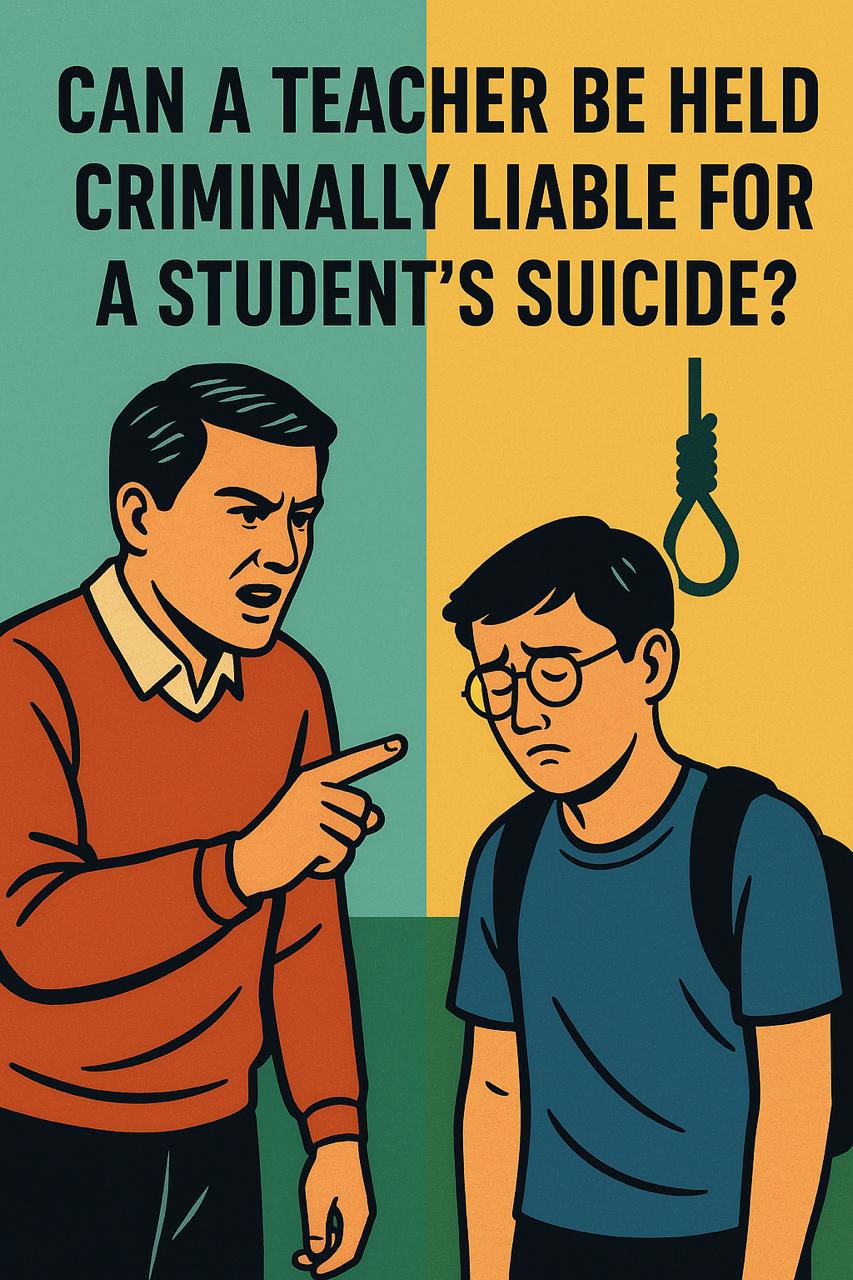Introduction
The question of whether verbal reprimand or disciplinary action by a teacher can amount to abetment of suicide has long been a grey area in Indian jurisprudence.The Supreme Court of India made a key decision. It ruled that just scolding a student doesn’t count as provocation or abetment under Section 306 of the Indian Penal Code. The Court stressed the need for intent and a clear link between the alleged act and the suicide. This verdict did two things: it cleared the teacher who was accused, and it spelled out what’s needed to prove criminal abetment.
Section 306 IPC:
The Law on Abetment of Suicide is being described in Section 306 of the IPC, deals with the act of encouraging someone to take their own life. According to this law, anyone who helps another person commit suicide can face up to ten years in prison, along with a possible fine.To obtain a conviction under this section, the prosecutor must establish three essential elements beyond a reasonable doubt: first, that the person who committed suicide actually did so; second, that the accused intended to aid, incite, or encourage the act; and third, that the accused was directly involved in the process.The purpose of this law is to penalise those who encourage others to intentionally take their own life. But not every argument, critique, or attempt to fix something falls into this group.
Case Background and Supreme Court’s Observations
In the present case, a teacher had reprimanded a student for academic reasons. The student later died by suicide. The teacher was charged under Section 306 IPC on the ground that the scolding triggered the suicide. However, the Supreme Court held that no direct evidence linked the teacher’s actions to the tragic act.
The Court highlighted that:
Scolding or criticism, even if stern, is not uncommon in educational settings.
The prosecution failed to prove that the teacher had the intention or knowledge that their act would drive the student to suicide.
The mental state of the student was not solely attributed to the teacher’s conduct.
There was no suicide note or credible material to establish that the act of reprimand was the cause of the suicide.
Implications of the Judgment
This verdict is significant for educators, legal practitioners, and institutions. While mental health awareness in schools must be taken seriously, this decision ensures that educators are not penalized for performing their duties unless there is proven abuse or persistent harassment.
The Court also cautioned against trivializing the serious charge of abetment. If every case of student suicide is followed by criminal charges against teachers, it would create fear among educators and hinder their ability to maintain discipline.
The Supreme Court’s ruling emphasizes that criminal liability should hinge on intention, solid evidence, and a clear link between actions and outcomes. Emotional distress alone, without clear proof of intentional provocation, doesn’t warrant prosecution under Section 306 IPC. As we step into our roles as future legal professionals, it’s crucial to differentiate between moral responsibility and legal accountability. This case serves as a poignant reminder that while empathy should guide our actions, the law must be anchored in reason and evidence.
About author
Bhawya is currently working on a PhD in Law – Corporate Law at Apex Law University. A keen interest in cybercrime and technology crossover with the law, Bhawya’s academic research looks at the issues created for modern legal regimes with the introduction of AI, particularly regarding women’s rights and abuse via digital mediums in India.

